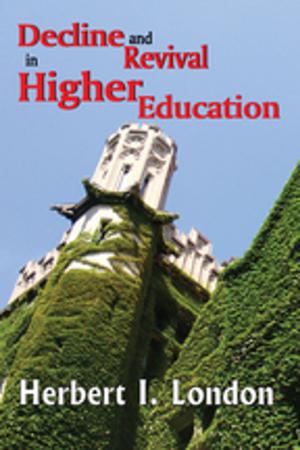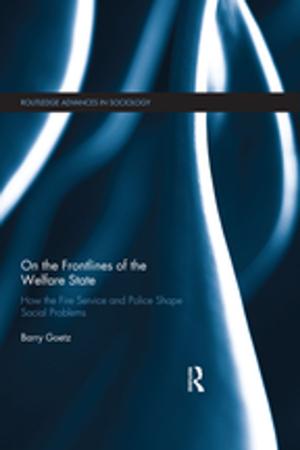| Author: | Stefan Ramsden | ISBN: | 9781315462912 |
| Publisher: | Taylor and Francis | Publication: | February 24, 2017 |
| Imprint: | Routledge | Language: | English |
| Author: | Stefan Ramsden |
| ISBN: | 9781315462912 |
| Publisher: | Taylor and Francis |
| Publication: | February 24, 2017 |
| Imprint: | Routledge |
| Language: | English |
It has appeared to many commentators that the most fundamental change in what it is meant to be working-class in twentieth-century Britain came not as a result of war or of want, but of prosperity. Social investigators documented how the relative affluence of the 1950s and 1960s improved the material conditions of life for working-class Britons whilst eroding their commitment to the shared life of ‘traditional’ communities.
Utilising an oral history case study of sociability and identity in the Yorkshire town of Beverley between the end of the Second World War and the election of Margaret Thatcher’s government, Working-Class Community in the Age of Affluence challenges this influential narrative. An introductory essay outlines how sociologists and historians understood the complex social, cultural and economic changes of the post-war decades through the prism of affluence, and traces how these changes came to be seen as deleterious to the ‘traditional’ working-class community. The book then proceeds thematically, exploring change across areas of social life including family, neighbourhood, workplace and associational life.
This book represents the first sustained historical analysis of change and continuity in working-class community living during the age of affluence. It suggests not only that older social practices persisted, but also that new patterns of sociability could strengthen as much as undermine community. Ultimately, Working-Class Community in the Age of Affluence asks us to rethink assumptions about the decline of local solidarities in this pivotal period, and to recognise community as a key feature of working-class life across the twentieth century.
It has appeared to many commentators that the most fundamental change in what it is meant to be working-class in twentieth-century Britain came not as a result of war or of want, but of prosperity. Social investigators documented how the relative affluence of the 1950s and 1960s improved the material conditions of life for working-class Britons whilst eroding their commitment to the shared life of ‘traditional’ communities.
Utilising an oral history case study of sociability and identity in the Yorkshire town of Beverley between the end of the Second World War and the election of Margaret Thatcher’s government, Working-Class Community in the Age of Affluence challenges this influential narrative. An introductory essay outlines how sociologists and historians understood the complex social, cultural and economic changes of the post-war decades through the prism of affluence, and traces how these changes came to be seen as deleterious to the ‘traditional’ working-class community. The book then proceeds thematically, exploring change across areas of social life including family, neighbourhood, workplace and associational life.
This book represents the first sustained historical analysis of change and continuity in working-class community living during the age of affluence. It suggests not only that older social practices persisted, but also that new patterns of sociability could strengthen as much as undermine community. Ultimately, Working-Class Community in the Age of Affluence asks us to rethink assumptions about the decline of local solidarities in this pivotal period, and to recognise community as a key feature of working-class life across the twentieth century.















